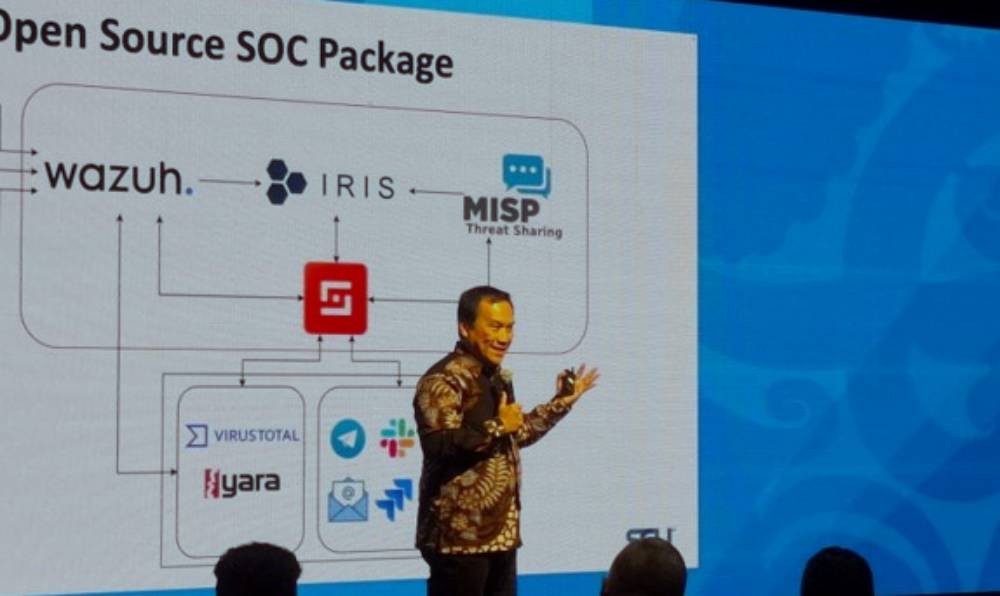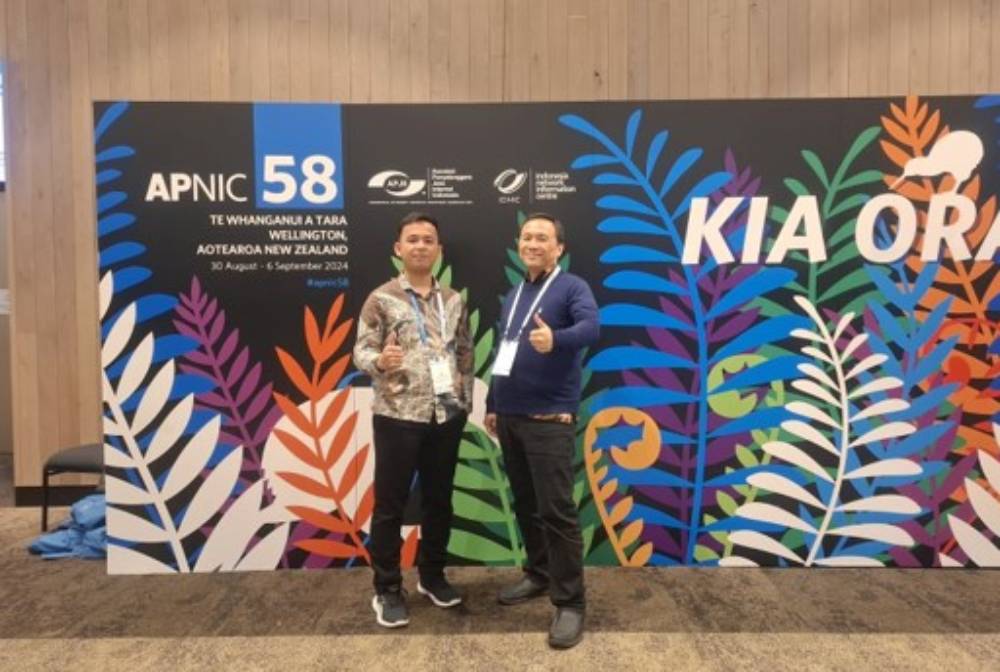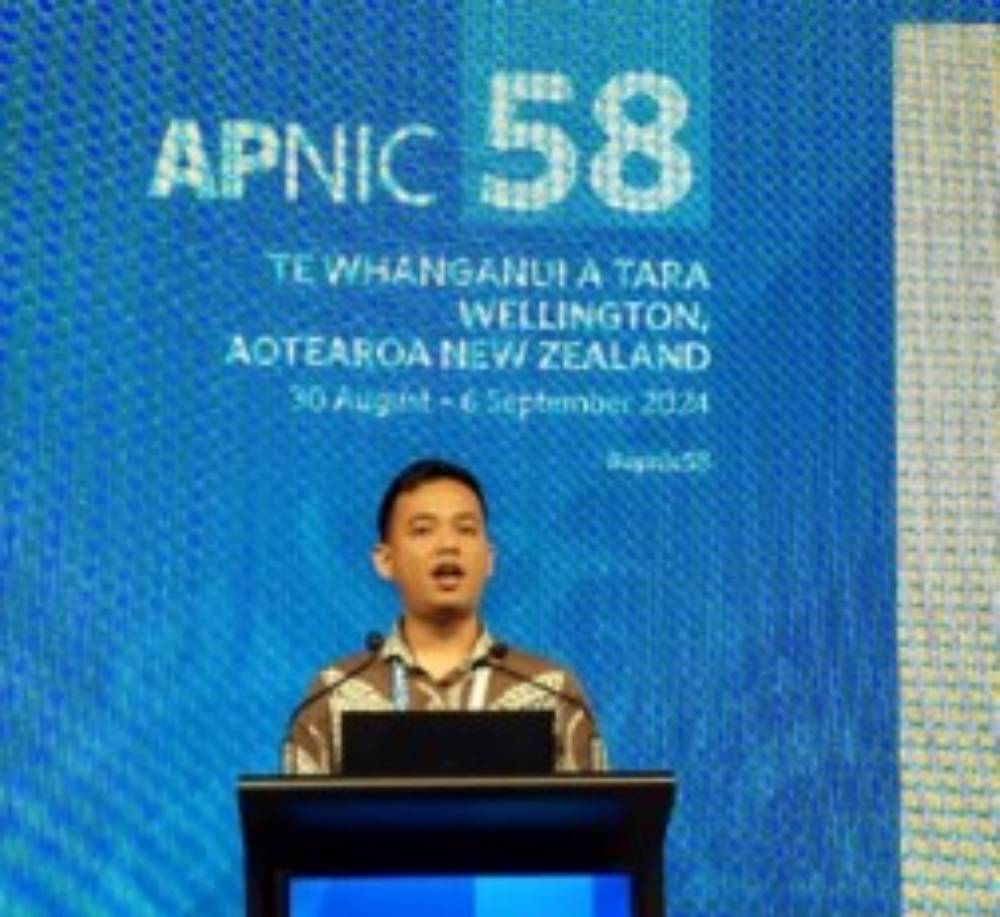
Groundbreaking Cybersecurity Innovations Unveiled at APNIC 58 in New Zealand
APNIC 58, held from August 30 to September 6, 2024, in Wellington, New Zealand, gathered global leaders in internet infrastructure and cybersecurity to discuss the latest innovations and address pressing challenges in the field. Organized by the Asia Pacific Network Information Center (APNIC), this premier event featured workshops, partner meetings, and key presentations that fostered collaboration on issues critical to the future of the internet.
A major focus of the conference was on topics such as IP core network routing, IPv6 deployment, cybersecurity threats, and advancements in smart city architectures and IoT security. Experts from across the Asia-Pacific region came together to share their insights on protecting digital infrastructure, managing IP address allocations, and addressing threats like DDoS attacks, malware, and spam.

Representing Swiss German University (SGU), Dr. Ir. Charles Lim, Bsc., M.Sc., Deputy Head of SGU MIT Study Program and Andi Parada Tambunan, S.Tr.Kom., student of SGU MIT Study Program, made significant contributions to the event. Dr. Ir. Charles Lim, Bsc., M.Sc., an experienced APNIC speaker, presented “Strengthening Cybersecurity in Higher Education: A Maturity Model for CSIRTs”, emphasizing the increasing vulnerability of universities to cyberattacks. He introduced a comprehensive maturity model designed to help educational institutions assess and enhance their cybersecurity readiness. His presentation outlined practical strategies for building resilient cybersecurity frameworks, ensuring that institutions are equipped to respond to and recover from cyber incidents effectively.
Meanwhile, Andi Parada Tambunan, S.Tr.Kom made his debut at APNIC 58 with his presentation, “Unveiling Attacker Strategies: Session-Based Analysis with HTTP Honeypots”. His innovative research focused on a new method of session-based analysis, capturing the entire interaction between attackers and honeypots. This approach provided deeper insights into attacker behavior, enabling security teams to better anticipate and mitigate potential threats. Tambunan’s research showcased a fresh perspective on threat detection and was well-received by the cybersecurity professionals in attendance.

The participation of SGU’s experts at APNIC 58 underscores the university’s commitment to advancing cybersecurity research and addressing global challenges in digital security. Dr. Dipl.-Ing. Samuel P. Kusumocahyo, Rector of SGU, expressed pride in their achievements, stating, “SGU’s involvement in APNIC 58 reflects our dedication to producing world-class research and experts in the field of cybersecurity. Their contributions are critical to safeguarding the digital future, particularly in education and beyond.”.
APNIC 58 proved to be a milestone event, not only highlighting groundbreaking research in cybersecurity but also reinforcing the importance of international collaboration. SGU’s active participation at this prestigious conference solidified the university’s reputation as a leader in cybersecurity education and research, contributing valuable insights to the ongoing global effort to strengthen digital infrastructure and combat cyber threats.
About Swiss German University
SWISS GERMAN UNIVERSITY (SGU) was established in 2000 as a joint effort between Indonesia, Germany, Switzerland, and Austria. We are the pioneer in offering international curricula in Indonesia. Qualified students can graduate with a Double Degree from Indonesia and Germany, which SGU provides in cooperation with partner universities; surely a valuable tool for your future careers. Ever since its establishment, SGU has been dedicated to delivering quality education in line with international standards and aims to develop skilled professionals who meet the demands of the industry. In order to achieve its objectives, SGU offers quality-oriented learning through 16 Bachelor‘s Degree Programs and 6 Master’s Degree Programs ranging from Engineering, Information Technology, and Business to Life Sciences and Social Sciences. Furthermore, with small class sizes, and with English as the medium of instruction, you can look forward to pursuing your tertiary education and degree with full confidence.

